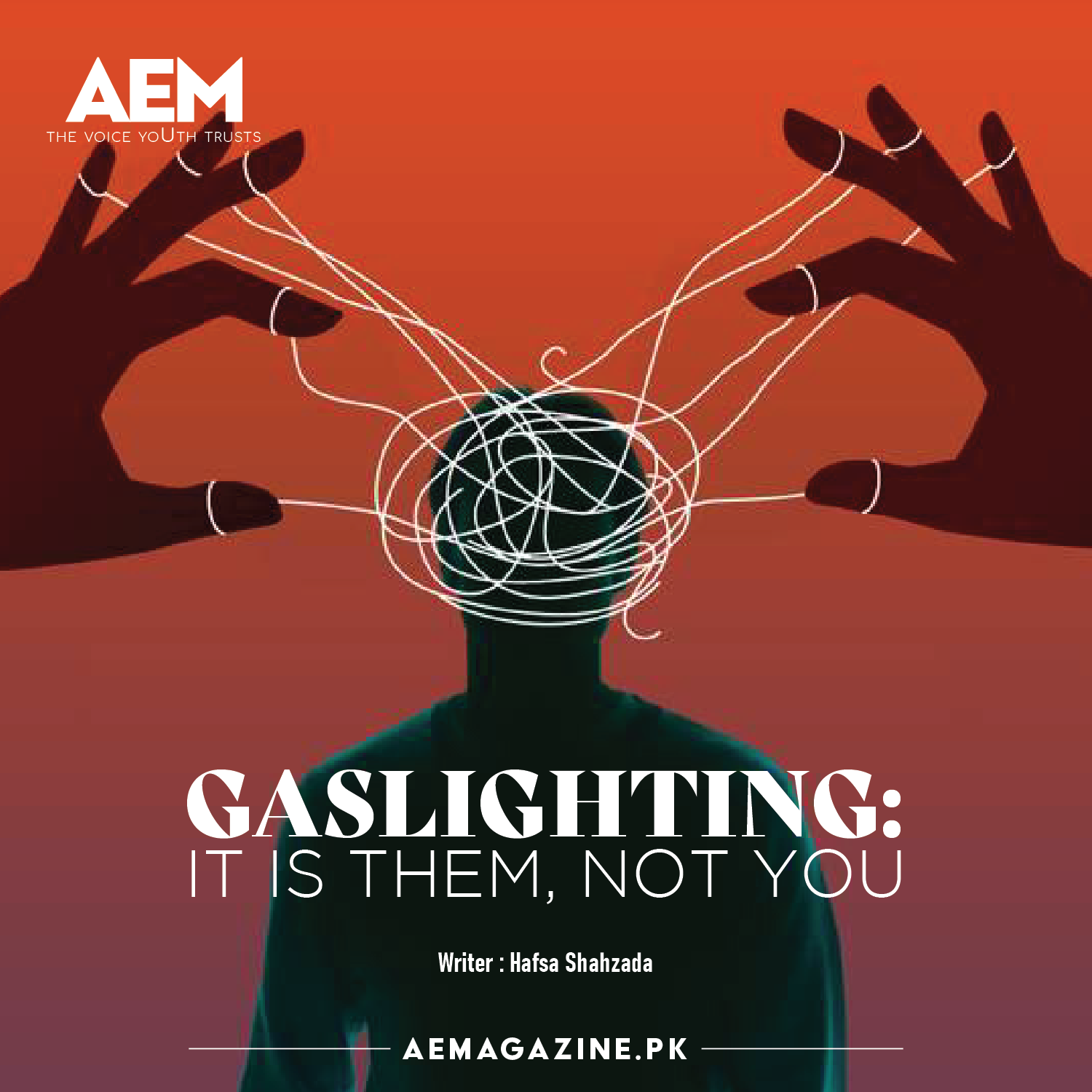
Article by
“Tum pagal ho! Aisay kabhi nahi howa!”. “Are you sure? You tend to have a bad memory”. “It’s all in your head”.
Gaslighting. A term once loosely heard of but is now one that has rapidly picked up steam over the past few years. Growing awareness and open discussion on mental health have led netizens to share observations, stories, and tweet threads of their personal anecdotes, as well as tag professional advice columns to solicit support for the survivor’s harrowing tales.
A quick crash course on its roots: The term Gaslighting was coined from the name of the 1938 play and 1944 movie Gaslight. In each of the cinematic pieces, the male protagonist convinces his wife she’s imagining things that are actually happening—including the dimming of the house’s gas lights—with the result of making her believe she has gone insane.
In its elementary form, Gaslighting is a form of psychological and emotional abuse. It is manipulation that hinges on creating self-doubt. Insidious at its core, the abuser seeks to exert psychological control over their victim by deliberately and systematically feeding them false information that leads them to question what they know to be true, often about themselves. An imbalance of power is established between the abuser and victim, as abusers typically exploit stereotypes or vulnerabilities linked to gender, class, race, sexuality, and/or nationality.
Now a Disclaimer: While gaslighting is most common in romantic relationships, it can also occur within family or workplace relationships.
Andrew D. Spear, Associate Professor of Philosophy at Grand Valley State University in Allendale, Michigan, pens down, “The most distinctive feature of gaslighting is that it’s not enough for the gaslighter simply to control his victim or have things go his way: It’s essential to him that the victim herself actually come to agree with him,” in his 2019 paper on gaslighting in Inquiry.
Signs to Watch Out For:
The “Twilight Zone” Effect: Victims frequently report a sense of derealization, as if the situation is occurring in a different realm from the rest of their life.
Language labeling you or your behavior as insane, unreasonable, or overemotional
Being told you’re exaggerating.
Feeling confused and powerless after ending a conversation
Isolation: Several gaslighters attempt to alienate their victims from their friends, family, and other support networks.
Tone Policing: Your gaslighter may criticize your tone of voice if you defy them on something. This is a strategy meant to turn the tables and push you to feel like you are the one to blame, rather than your abuser.
Cycle of warm-cold behavior: to throw the victim off balance, the abuser alternates between praise and verbal abuse, often in the same conversation.
Some Techniques a Gaslighter Typically Uses:
Countering: The abuser questions the victim’s memory of events, even when the victim accurately remembers them.
Withholding: The abusive partner pretends not to understand or refuses to listen.
Blocking/ Diverting: The abuser changes the topic and/or questions the victim’s thoughts.
Trivializing: Abuser makes the victim’s needs or feelings appear insignificant.
Forgetting/ Denial: Abuser pretends to have forgotten what actually happened or denies commitments, like promises made to the victim.
Anyone who believes they are experiencing abuse of such kind should seek support.
Gradually, emotional abuse may escalate into physical violence. Even if the abuse does not become physical, gaslighting and similar behaviors can significantly undermine a person’s self-esteem and mental health.
To address the mental impact of gaslighting, a person may find it helpful to talk confidently to a therapist who has experience helping people in abusive relationships, or to their support circle. At most, a survivor can contact a domestic abuse organization for advice and help with creating a safety plan.
Remember: You can always recover from the trauma of gaslighting. It does not define you. Only you define your story.
 Monthly "Azeem English Magazine", launched in 2000, records the information about diverse fields like mental health, literature, research, science, and art. The magazine's objective is to impart social, cultural, and literary values to society.
Monthly "Azeem English Magazine", launched in 2000, records the information about diverse fields like mental health, literature, research, science, and art. The magazine's objective is to impart social, cultural, and literary values to society.
+92 51 88 93 092
First Floor, RAS Arcade, Eidhi Market, Street#124, G-13/4, Islamabad, Pakistan, 44000.